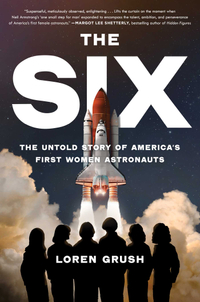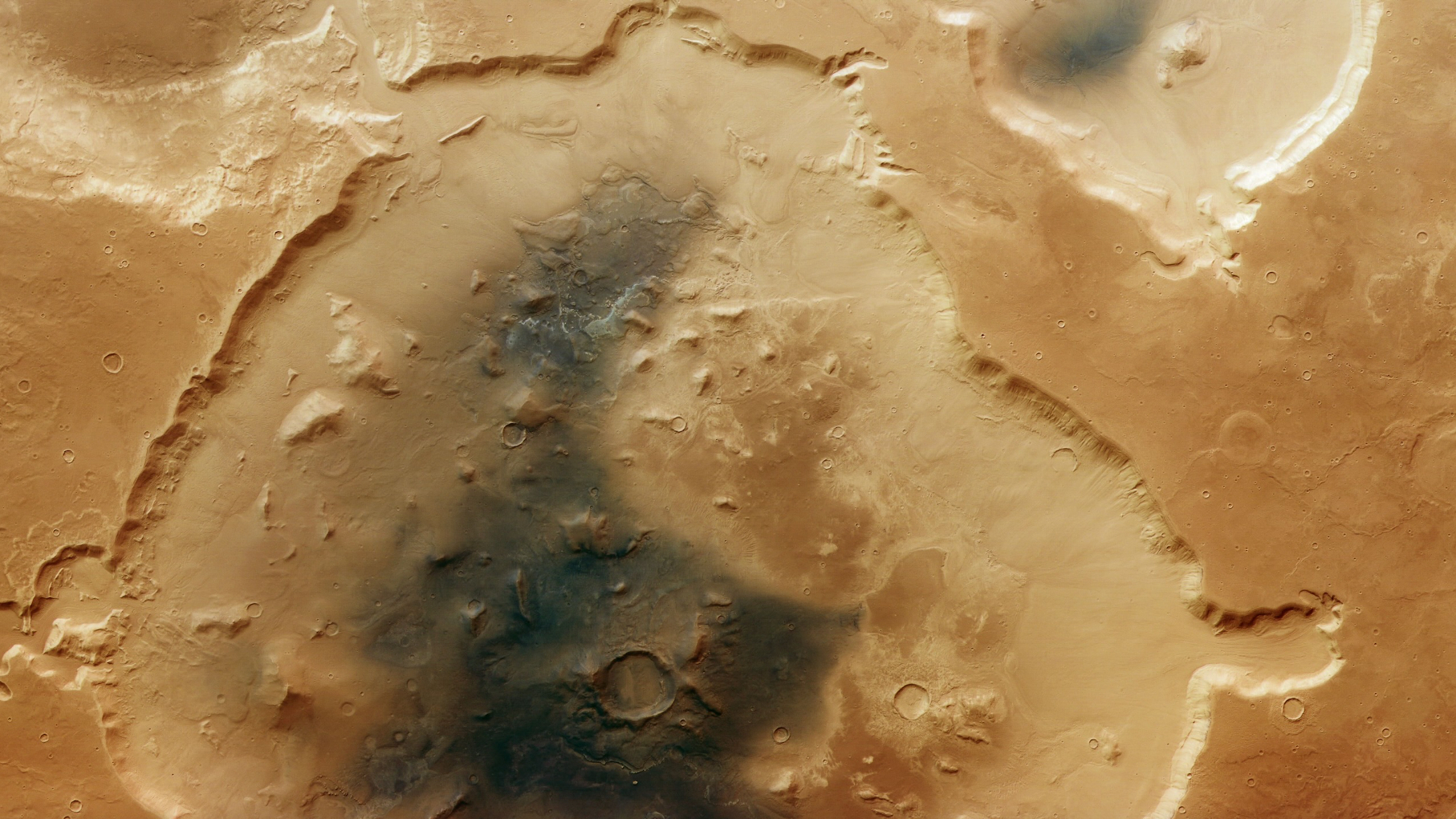Learn the true stories of NASA's 1st women astronauts in new book 'The Six' (exclusive)
'For people who might be intimidated by others who have a calling, or know what they want to do, just look at the Six.'
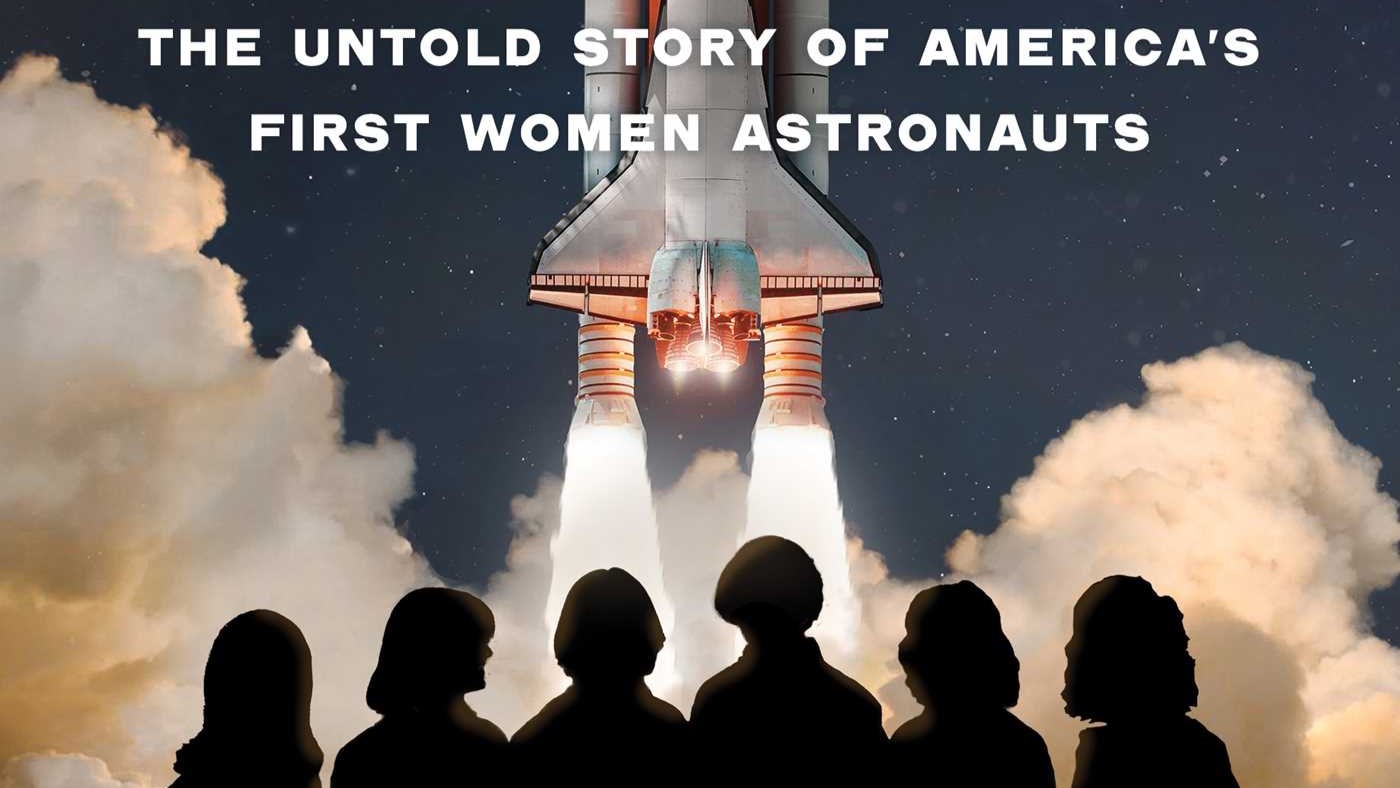
NASA changed forever in 1978 with the addition of new kinds of astronauts.
That year, NASA accepted women and people of color into the astronaut corps for the first time, and the new book "The Six: The Untold Story of America's First Women Astronauts" (Scribner, 2023) by Loren Grush shares the true firsthand stories of the female pioneers in that group. Grush's book focuses on the stories of astronauts Sally Ride, Judy Resnik, Anna Fisher, Kathy Sullivan, Shannon Lucid and Rhea Seddon, while also talking about the decades of discrimination other women pioneers in space faced before their selection.
Grush did 100 hours of interviews and countless more hours of research, amid the early days of the coronavirus pandemic, to put together their story. She shared some of her findings with Space.com in an exclusive interview.
Related: Pioneering women in space: A gallery of astronaut firsts
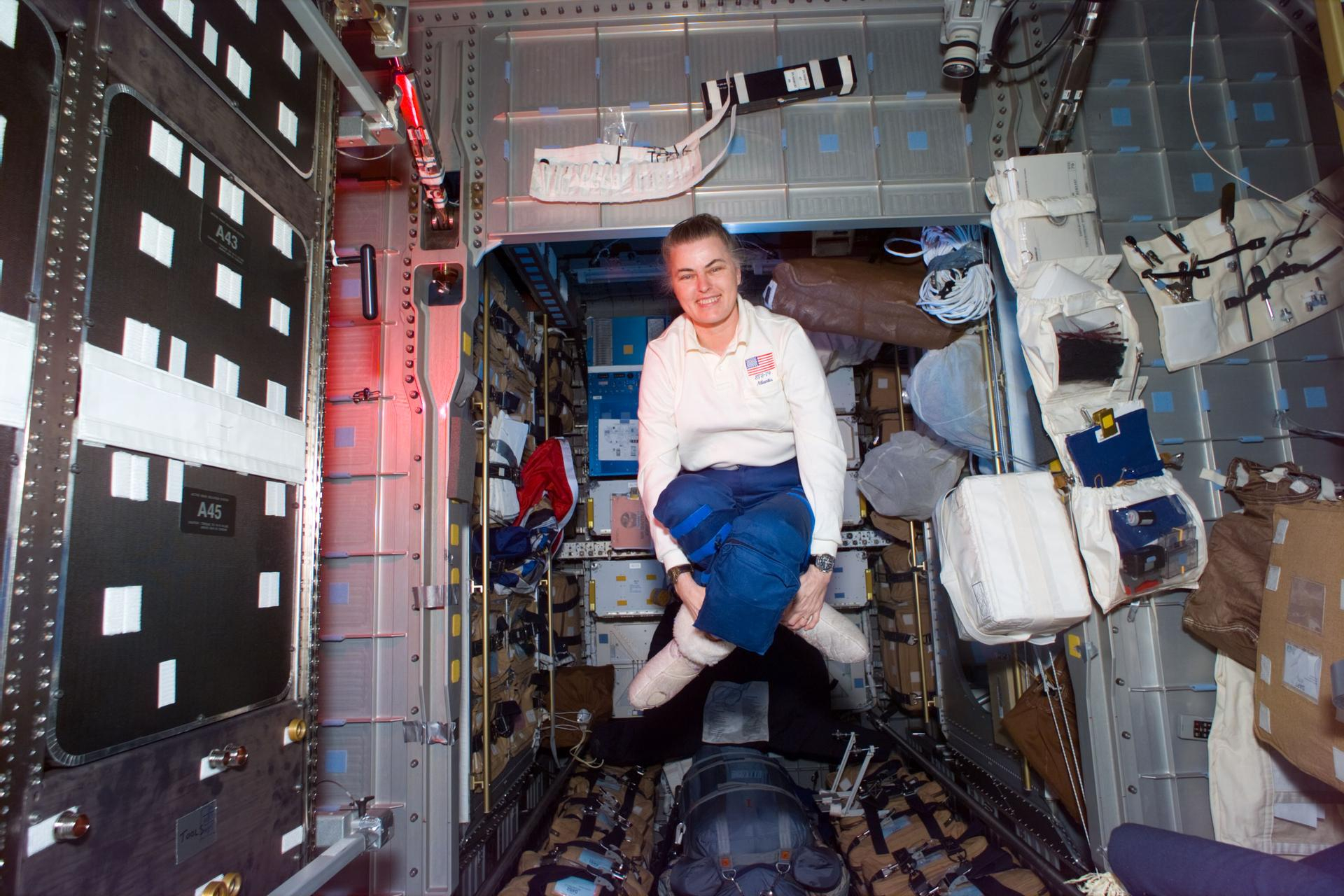
The Six: The Untold Story of America's First Women Astronauts | $27.01 on Amazon
Space journalist Loren Grush uncovers the stories of the first six women NASA astronauts through archival research and 100 hours of interviews. Learn about the lives of Sally Ride, Kathy Sullivan, Judy Resnik and other women astronaut pioneers.
Space.com: Before you took on this book, what did you think was missing from the publicly known stories of the Six at that time?
Grush: There's been plenty written about them, and some of the Six themselves have written their own books, But I felt like they hadn't been examined as a group before, and I thought that might be really interesting. I was probably the same as most people of the general public: I knew of Sally Ride, but I really didn't know her story very well. I did not have much knowledge of the other five women in the group. I felt like it would be a great way to educate myself, and bring their stories to light for everyone else at the same time.
Also, through researching this book, I learned a lot about the [astronaut] selection process. That really surprised me, in terms of picking how the women flew and in what order. That opened up all these "What if?" questions in my mind. I realized that it easily could have been any one of the other five women who became the first American woman in space [rather than Ride]. So I think it was important to talk about the rest of the five women, just because the historical order could have been so different.
Space.com: I guess it also might shade our perceptions of looking at Sally Ride, as incredible of an individual she was. But in the book, especially with the questions that she was being asked by reporters, we saw how much pressure that she was under. But there were other people (at NASA) that understood that from the inside. Is that something you were trying to show through the story?
Grush: You mean in terms of that they were cognizant of how much attention she was going to get and how to support her? Absolutely. I think they were extremely aware that the first American woman was going to get massive media attention.
If you look at when they were first presented as a group to the public, when they [NASA] offered up the astronauts for interviews, all of the women were bombarded. They [and the first Black astronauts] were staying at NASA until late in the evening, while the other new astronauts — the white men — got to go home early because nobody really wanted to talk to them. I think that was a harbinger of what was to come, because it really showed how fascinated with the women that the press and the media were.
What was surprising was that, from the people I spoke to, it seemed like it didn't really sink in for Sally, how monumental that selection was. She was mostly excited that she was going to space, but I don't think it didn't hit her until she came back. She realized how big of a moment that this was for history, and America. She dealt with it in a difficult way, and she ultimately sought therapy for it. But I think overall that they, NASA, knew how big of a milestone this was going to be.
Space.com: Exactly. I was wondering — this is more of a personal question for yourself — but as a woman reporter, and also as a person reporting in what I hope is a more diverse era where we have more ethnicities and more types of people that are reporters, what were your reactions as you were reading about how it was in the 1970s and 80s? Were you reflecting on how reporting practice may or may not have changed today?
Grush: The press, I don't want to say they were the villains. But if there was going to be someone to point to in terms of the most egregious things that the women had to deal with, it was certainly the media attention. I'm constantly apologizing for our media ancestors, because they were the ones that were asking the questions that I think were indicative of how far we still had to go at the time.
When they were first selected, someone asked if Shannon Lucid's three kids were considered during her selection process. Imagine asking that question today. We would be escorted out of the room. It really was an eye-opening experience to hear how the press talked about the women. Even when they were announced, my mouth dropped open. There was one announcement I watched on TV, and it listed out their names, their ages and their marital statuses. The fact that they felt like that was relevant information at the time was mind-blowing to me. I really did get a crash course education on how not to do my job.
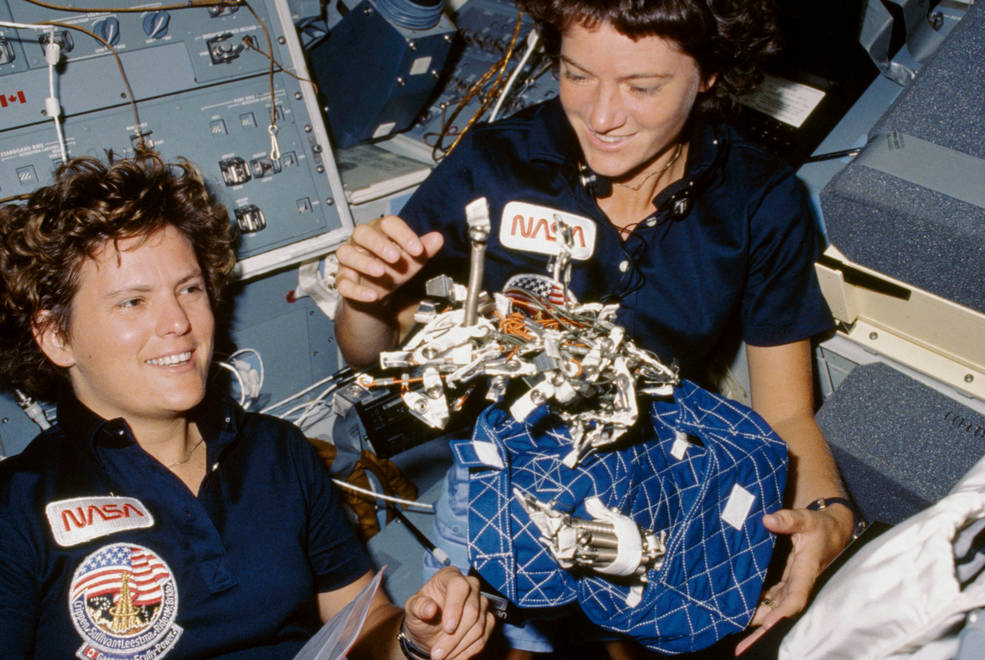
Space.com: Yeah, you're also training me about how not to do my job. Along that same theme, often when I'm speaking with people at NASA today, I hear from them that diversity is so important in their decision-making to help with safety and other things. With that in mind, I was really interested in the latter part of your book, talking about the space shuttle Challenger disaster (in 1986) and about the roles that everybody played. Not just Sally Ride, who was on the (investigative) board, but also the other women's contributions. Can you talk a bit about their key roles, and how that might have helped with future space missions?
Grush: Sally obviously had a pretty outsized role in the Challenger investigation. She was part of the Rogers Commission. I had known about the story that she was involved in what was ultimately leading to the discovery of the O-rings [of the solid rocket boosters failing, as one of the key causes of the disaster]. But learning about it and diving into it was a beautiful moment, [in the sense that] the first American woman in space was serving as a whistleblower to help solve the mystery of what ultimately led to the death of the second American woman in space [Judith Resnik]. It was showcasing how the women really stood up for each other, and tried to help each other out, even after one of them was lost.
In terms of the other women, they had roles too. One of the big things after Challenger was streamlining all of the data and the procedures that they had. Anna and Shannon were very involved in that process.
Challenger is also pretty well-known for having changed the course of NASA. It was such a big wake-up call for the space agency. They completely re-evaluated their procedures: how they made decisions in terms of whether to launch, and what they accepted in terms of deviant behavior. Also, they added many more safety protocols. For instance, there was the addition of pressure suits in the shuttle cockpit. I'll be honest: I was pretty shocked that they didn't fly in pressure suits. Having covered space, I'd considered that that was always the case; you always flew with some kind of pressure suit.
The Challenger accident was really the end of a chapter (in spaceflight), and that's ultimately why I chose to end the book with it. I felt like it stopped one era of the space shuttle program that included the first six women, and it started a new one. It really paved the way for a new generation of astronauts and women who came on board in the years afterward.
Related: NASA's space shuttle program in pictures: A tribute
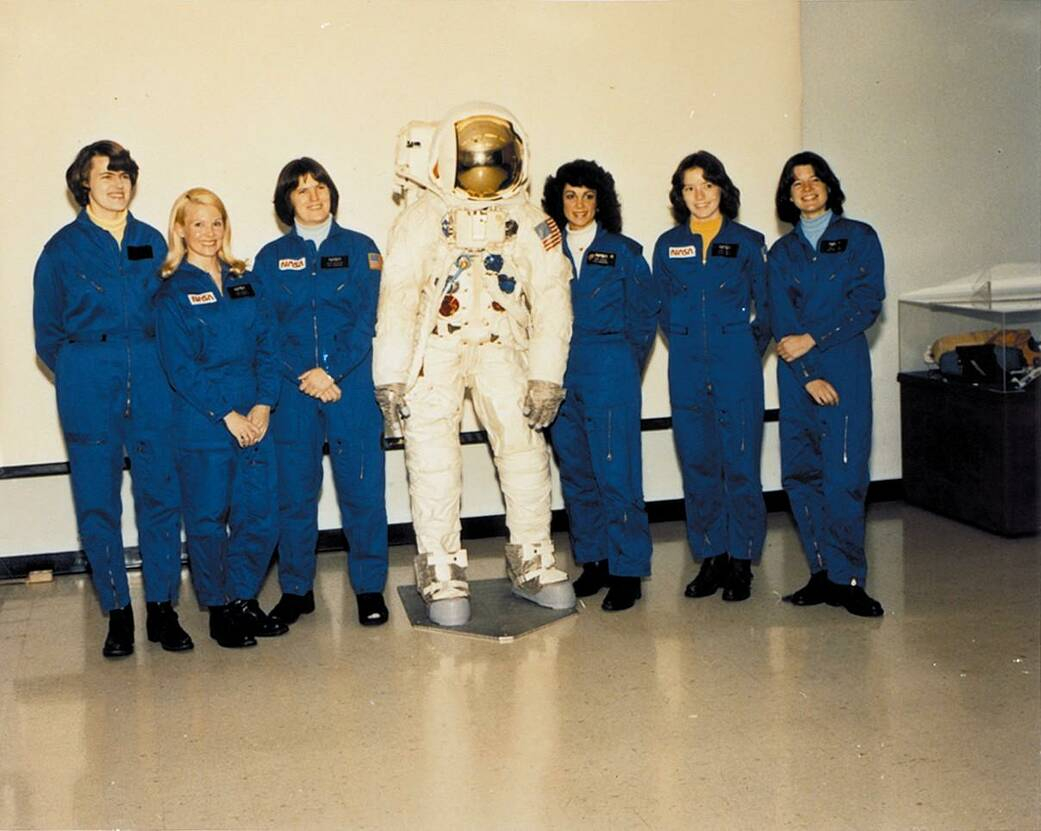
Space.com: Were there any key moments in your research where you were finding that you were uncovering something that made your book change a bit in front of you?
Grush: I think I did have in my mind a different idea of who was going to be upset about not being the first woman picked, at least in what they said openly. Obviously, Judy isn't with us, but that's something she was asked quite a lot. But is that something that we could really learn from those interviews? I don't know, but she ultimately said that she was not [upset].
But uncovering those interpersonal dynamics: I wouldn't say it's shocking, but they were surprising, and ultimately relatable when I did uncover them. I feel like any one of us, if we were in a competitive situation like that, we would also desire to be the first to fly — or at least to go early. I think that's a very relatable human experience.
Space.com: For sure. Towards the conclusion of the book, you pointed out that each one of the Six deserves their own book. That's if they don't have one already, which many of them do. But if you were to try and pick one for a future book, do you have any preference or any ideas about who you might want to go with first?
Grush: Shannon would make for a fantastic book. I feel like the part of her that I talked about in this book doesn't even begin to encapsulate her amazing career. She is well-known for spending her long-duration mission on board the Russian Mir space station. While she did write a small book about that, I feel like it really is such a great jumping-off point for a long book discussing what it's like to be in space for such long periods of time. Also, I think Anna would be a fantastic book as well. She had such a storied career after she came back from her [family] leave. She didn't fly into space again, but the work that she did while she was in NASA definitely could easily fill a book. So there's plenty to discuss.
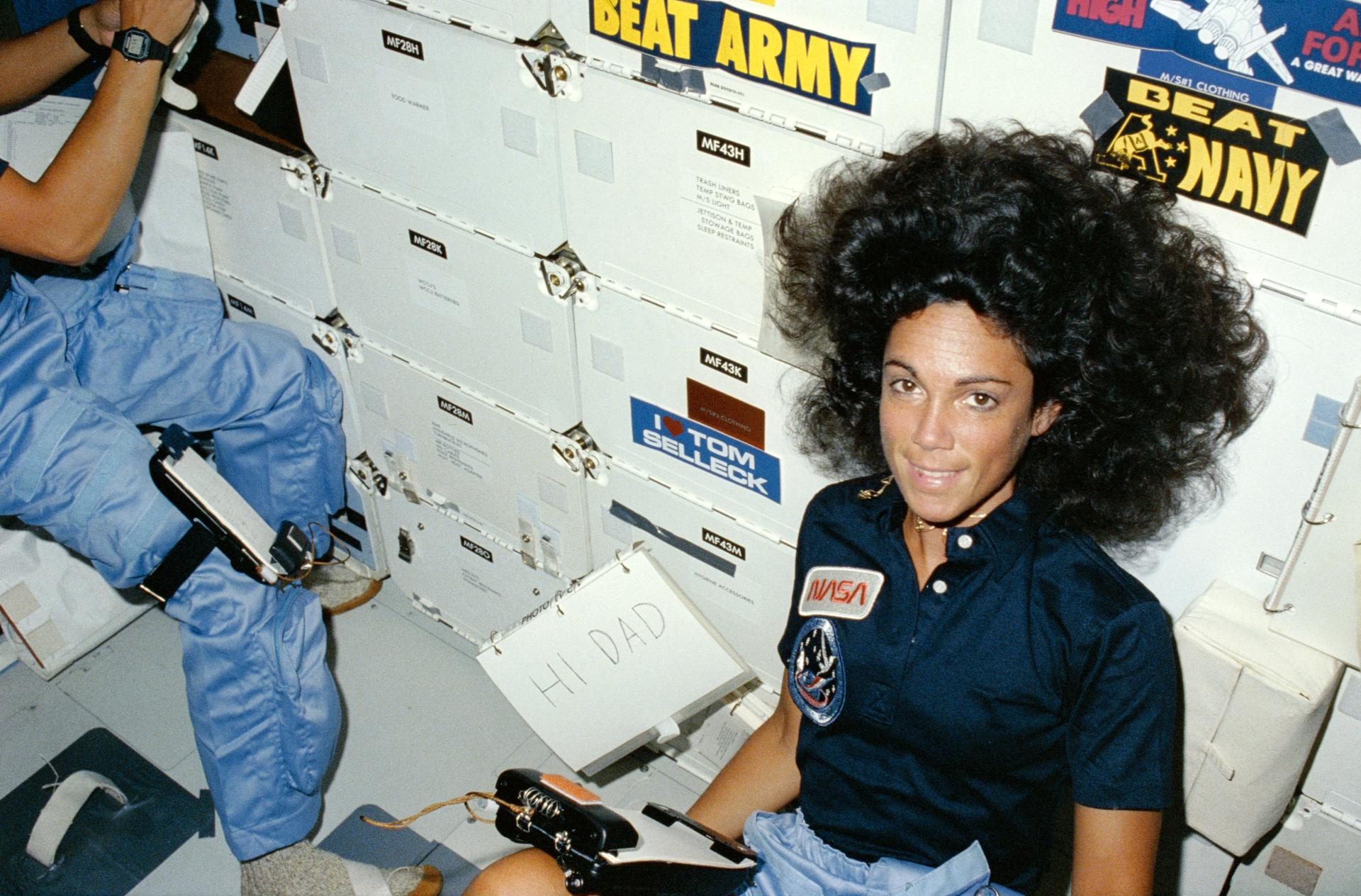
Space.com: Was there anything else you wanted to add to our discussion about your book, the research, anything else that's relevant?Space.com: Was there anything else you wanted to add to our discussion about your book, the research, anything else that's relevant?
Grush: I really hope people take away from this book that it's really a group of women who wanted to do their jobs. Their jobs just happened to be hundreds of miles above the Earth and moving at 17,500 mph [28,000 kph]. That's really the takeaway. Obviously, they were the first and they were pioneers. But it was ultimately just because they wanted to do their jobs and to do it well, that they opened that door for other women to come after them.
One of the other things I say all the time, that I really love, is that they are inspiring to me. They are so different and so unique. They really show that there isn't one resume to be an astronaut. There were medical doctors, chemists, astrophysicists, electrical engineers, oceanographers. It shows to me that you can get to space in any possible scenario, any way that you want.
You don't even have to dream about [space] your whole life. Some of them didn't even know they wanted to be astronauts until they saw the selection process. That's the takeaway for me. I feel like I didn't know I wanted to be a space reporter when I was young. That definitely evolved over time.
So for people who might be intimidated by others who have a calling, or know what they want to do, just look at the Six. Not all of them knew what they wanted. Look where they turned up.
This interview has been edited and condensed for length.
Get the Space.com Newsletter
Breaking space news, the latest updates on rocket launches, skywatching events and more!
Join our Space Forums to keep talking space on the latest missions, night sky and more! And if you have a news tip, correction or comment, let us know at: community@space.com.

Elizabeth Howell (she/her), Ph.D., was a staff writer in the spaceflight channel between 2022 and 2024 specializing in Canadian space news. She was contributing writer for Space.com for 10 years from 2012 to 2024. Elizabeth's reporting includes multiple exclusives with the White House, leading world coverage about a lost-and-found space tomato on the International Space Station, witnessing five human spaceflight launches on two continents, flying parabolic, working inside a spacesuit, and participating in a simulated Mars mission. Her latest book, "Why Am I Taller?" (ECW Press, 2022) is co-written with astronaut Dave Williams.
